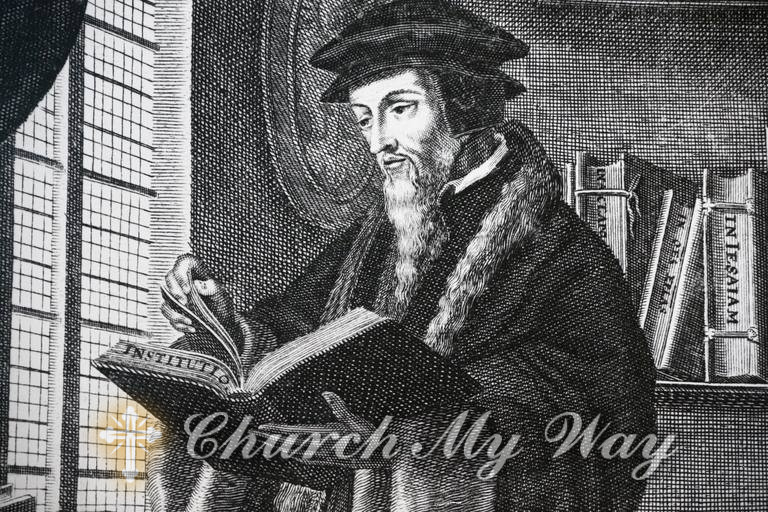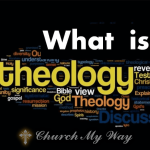Theology of Reformed Christianity: What is Reformational Theology and How Does it Compare with Orthodox Theology?
Theology of Reformed Christianity. Reformational theology is a branch of Christianity that follows the teachings of men like John Calvin and Huldrych Zwingli. It is sometimes also called Neo–Calvinism. This type of theology emphasizes the sovereignty of God, the authority of Scripture, and the need for personal regeneration. It also teaches that humans are totally depraved and that God has predestined some to salvation. In general, Reformational theology is more focused on the spiritual aspects of Christianity than on the physical aspects.
Reformational theology is sometimes criticized for its emphasis on predestination and its view of humans as totally depraved. Some argue that this type of theology leads to a lack of motivation to do good works. Others argue that it leads to a fatalistic view of life. However, Reformational theology has many supporters who argue that it is a biblical and accurate view of Christianity. Reformational theology’s supporters maintain that the Bible teaches predestination and that humans are totally depraved. They argue that this theology is accurate and biblical.
Reformational theology‘s supporters maintain that the Bible teaches predestination and that humans are totally depraved. They argue that this theology is accurate and biblical. Predestination is the doctrine that God has chosen certain people for salvation and that they cannot resist His call. This means that people who are not predestined for salvation will not be saved no matter what they do. Critics argue that this doctrine leads to a lack of motivation to do good work.
Supporters of Reformational theology argue that the Bible teaches that good works are the result of salvation, not the cause of it. They argue that humans are not saved by their good works, but that their good works are a result of their salvation.
A Brief History of Reformed Christianity
When Christianity was first introduced to Europe, it was the Romanized version. This version of Christianity relied heavily on a transcendent god who would punish sinners and reward believers. It also consisted of a rigid hierarchy that implied that those at the top had more power and privileges. However, as time went on, many people felt that this version of Christianity was oppressive and corrupt. They started to create new interpretations of what they believed in order to make their faith more accessible to all people.
This led to a lot of social reformations within the Christian faith. One such movement was termed “Reformed” because it tried to restore aspects of Christianity that were lost during the Protestant Reformation. This movement called for a return to a lower-case god who is not as distant from humans as the upper-
What is a Reformed Christian?
The Reformed tradition is grounded in the gospel of Jesus Christ, and seeks to offer a thoughtful, biblical, and Spirit-filled response to the challenges of our times.
Reformed Christians understand that the Bible is the only infallible rule for faith and practice. They do not view Scripture simply as a book of moral teachings or general principles but also see it as providing specific guidance on how to live in this world.
Reformed theology has always been marked by an emphasis on grace alone rather than relying heavily on works for salvation.
Reformational & Orthodox Perspective on Sola Scriptura & Interpretation of Scripture

In the Reformational perspective, Scripture alone is the final authority because it is seen as inspired and inerrant. Sola Scriptura has been a controversial topic and there are different points of view on this particular issue.
Reformation: Protestants believe that Scripture is infallible and inerrant because it is directly revealed by God. The Reformers sought to reform the teachings of the Catholic Church by focusing on scripture alone as a means of salvation. They wanted to make things like confession, absolution, and purgatory obsolete by emphasizing sola scriptura.
Orthodox: Orthodoxy believes that tradition and scripture form one united whole; tradition preserves what was taught from apostolic times, while scripture provides the basis for that teaching. Orthodox people say that Scripture does not replace tradition but rather
What is Sola scriptura?
Sola Scriptura, which means “by Scripture alone,” is a theological term that emphasizes the Bible as “the sole norm or source for Christian doctrine” (1). This tenet of Christianity was first articulated by Martin Luther in 1520. It rejects any authority other than that of the Bible, which it holds to be self-authenticating and clear in its meaning.
Orthodox Perspective on Solipsism and Sacred Tradition vs. Protestant Beliefs
The Protestant Reformation was a religious revolution that impacted the Christian church in Western Europe.
The main division between Protestants and Catholics is what they believe about sola scriptura – the Bible alone is the source of all Christian doctrine. For Catholics, sacred tradition and church tradition are also sources of authority.
Orthodox Christianity teaches us that traditions are important for guiding us to an understanding of God’s plan for our salvation. As such, there are many different orthodox beliefs about sola scriptura – some say that it is not an absolute rule while others think that it should be followed exactly.
Conclusion on Reformed Christianity
The Reformation is a term used to describe the period of religious reform in Western Europe during the 16th century. Martin Luther was one of the chief architects of the Reformation and his ideas on salvation led him to break from the Catholic Church and inspire a rebellion against Rome’s authority that would result in an unprecedented split of Christianity during the early modern period. There are many significant historical events and ideologies that can be traced back to Martin Luther’s work including an emphasis on Bible reading for personal devotion, belief in justification by faith alone, and opposition to monasticism.
In conclusion, it is important to note that while there were many positive aspects of Martin Luther’s work such as his advocacy for Bible reading which led people to read scripture more
This study examined the differences between the traditional Reformed Christian view of the inspiration of scripture and the modern fundamentalist view of scripture. The traditional view holds that scripture is divinely inspired and inerrant, whereas the modernist view holds that scripture is divinely inspired but not inerrant.
The differences between these views are found in each group’s understanding of the nature of scripture, the process of inspiration, and how scripture is viewed in relation to other sources of authority.
To conclude, the big question is which is more powerful: a pen or a sword? A pen, because it defends and protects.







